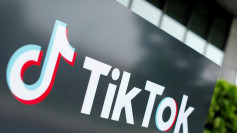Amid ongoing geopolitical tensions and U.S. sanctions, Huawei Technologies Co., a major Chinese telecommunications firm, has discreetly funneled millions into cutting-edge American research, according to a report by Bloomberg News. This covert funding is channeled through the Optica Foundation, a Washington-based entity affiliated with the non-profit professional society Optica, which focuses on photonics and optics research.
The controversy stems from the secrecy surrounding Huawei's involvement, especially given its blacklist status by the U.S. due to security concerns. According to insiders and documents reviewed, the Optica Foundation's competition, solely funded by Huawei, has awarded substantial sums to researchers globally, including those from prestigious U.S. institutions like Harvard University. These institutions have policies restricting collaborations with Huawei, highlighting the sensitive nature of the funding.
The program, which started in 2022, offers a $1 million annual prize, significantly outpacing other awards listed by the Optica Foundation. This lucrative funding has attracted hundreds of proposals worldwide, emphasizing the competition's impact on scientific research. Despite this, the foundation's agreements stipulate that Huawei's role as the benefactor remain confidential, a clause that has sparked significant discourse about transparency and ethical funding in academia.
Liz Rogan, CEO of Optica, defended the practice, asserting that anonymity in donations is not uncommon and that all transactions had undergone rigorous legal scrutiny and board approval. According to Rogan, "We are completely transparent with the funding and support of the Foundation programs with the Optica Foundation Board, the Optica Board, and staff."
However, the revelation of Huawei's involvement was unknown to many participants and university officials until recently. The revelation has prompted a broader discussion about the influence of foreign funding in critical research sectors and its implications for global technology leadership.
The Huawei-sponsored competition is particularly significant as it supports research that underpins advanced technologies, such as telecommunications and biomedical diagnostics. Huawei's spokesperson stated that the initiative aims to foster global academic communication and research without the intent of serving as a promotional tool for the company.
This funding strategy illustrates Huawei's resilience and adaptability in maintaining a foothold in global technological advancements despite stringent U.S. restrictions. These restrictions were intensified around 2019, severely limiting Huawei's access to essential chip-making tools and hampering its ability to compete in the high-end smartphone market.
Moreover, Huawei's continued investment in foreign technology sectors comes at a time when the company reports substantial financial growth, with a 564% increase in net profit in the first quarter of the year. This financial upturn coincides with a strategic recalibration towards dominating the Chinese market, where it now rivals global giants like Apple and Samsung.






